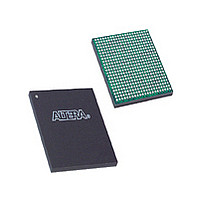EP3C16F484A7N Altera, EP3C16F484A7N Datasheet - Page 55

EP3C16F484A7N
Manufacturer Part Number
EP3C16F484A7N
Description
Cyclone III
Manufacturer
Altera
Datasheet
1.EP3C16F484A7N.pdf
(274 pages)
Specifications of EP3C16F484A7N
Family Name
Cyclone III
Number Of Logic Blocks/elements
15408
# I/os (max)
346
Frequency (max)
437.5MHz
Process Technology
65nm
Operating Supply Voltage (typ)
1.2V
Logic Cells
15408
Ram Bits
516096
Operating Supply Voltage (min)
1.15V
Operating Supply Voltage (max)
1.25V
Operating Temp Range
-40C to 125C
Operating Temperature Classification
Automotive
Mounting
Surface Mount
Pin Count
484
Package Type
FBGA
Lead Free Status / Rohs Status
Compliant
Available stocks
Company
Part Number
Manufacturer
Quantity
Price
Company:
Part Number:
EP3C16F484A7N
Manufacturer:
ALTERA
Quantity:
717
Part Number:
EP3C16F484A7N
Manufacturer:
ALTERA/阿尔特拉
Quantity:
20 000
- Current page: 55 of 274
- Download datasheet (6Mb)
Chapter 3: Memory Blocks in the Cyclone III Device Family
Chapter Revision History
Power-Up Conditions and Memory Initialization
Power Management
Chapter Revision History
Table 3–6. Chapter Revision History
© December 2009
December 2009
July 2009
June 2009
October 2008
May 2008
July 2007
March 2007
Date
f
Altera Corporation
The M9K memory block outputs of the Cyclone III device family power up to zero
(cleared) regardless of whether the output registers are used or bypassed. All M9K
memory blocks support initialization using a .mif. You can create .mifs in the
Quartus II software and specify their use using the RAM MegaWizard Plug-In
Manager when instantiating memory in your design. Even if memory is
pre-initialized (for example, using a .mif), it still powers up with its outputs cleared.
Only the subsequent read after power up outputs the pre-initialized values.
For more information about .mifs, refer to the
Quartus II
The M9K memory block clock enables of the Cyclone III device family allow you to
control clocking of each M9K memory block to reduce AC power consumption. Use
the rden signal to ensure that read operations only occur when necessary. If your
design does not require read-during-write, reduce power consumption by deasserting
the rden signal during write operations, or any period when there are no memory
operations. The Quartus II software automatically powers down any unused M9K
memory blocks to save static power.
Table 3–6
Version
2.2
2.1
2.0
1.3
1.2
1.1
1.0
lists the revision history for this chapter.
Handbook.
Minor changes to the text.
Made minor correction to the part number.
Updated to include Cyclone III LS information
■
■
■
■
■
■
■
■
Updated chapter to new template.
■
■
Added chapter TOC and “Referenced Documents” section.
Initial release.
Updated chapter part number.
Updated “Introduction” on page 3–1.
Updated “Overview” on page 3–1.
Updated Table 3–1 on page 3–2.
Updated “Control Signals” on page 3–3.
Updated “Memory Modes” on page 3–8.
Updated “Simple Dual-Port Mode” on page 3–10.
Updated “Read or Write Clock Mode” on page 3–16.
Revised the maximum performance of the M9K blocks to 315 MHz in
“Introduction” and “Overview” sections, and in Table 3-1.
Updated “Address Clock Enable Support” section.
Changes Made
RAM Megafunction User Guide
Cyclone III Device Handbook, Volume 1
and the
3–19
Related parts for EP3C16F484A7N
Image
Part Number
Description
Manufacturer
Datasheet
Request
R

Part Number:
Description:
CYCLONE II STARTER KIT EP2C20N
Manufacturer:
Altera
Datasheet:

Part Number:
Description:
CPLD, EP610 Family, ECMOS Process, 300 Gates, 16 Macro Cells, 16 Reg., 16 User I/Os, 5V Supply, 35 Speed Grade, 24DIP
Manufacturer:
Altera Corporation
Datasheet:

Part Number:
Description:
CPLD, EP610 Family, ECMOS Process, 300 Gates, 16 Macro Cells, 16 Reg., 16 User I/Os, 5V Supply, 15 Speed Grade, 24DIP
Manufacturer:
Altera Corporation
Datasheet:

Part Number:
Description:
Manufacturer:
Altera Corporation
Datasheet:

Part Number:
Description:
CPLD, EP610 Family, ECMOS Process, 300 Gates, 16 Macro Cells, 16 Reg., 16 User I/Os, 5V Supply, 30 Speed Grade, 24DIP
Manufacturer:
Altera Corporation
Datasheet:

Part Number:
Description:
High-performance, low-power erasable programmable logic devices with 8 macrocells, 10ns
Manufacturer:
Altera Corporation
Datasheet:

Part Number:
Description:
High-performance, low-power erasable programmable logic devices with 8 macrocells, 7ns
Manufacturer:
Altera Corporation
Datasheet:

Part Number:
Description:
Classic EPLD
Manufacturer:
Altera Corporation
Datasheet:

Part Number:
Description:
High-performance, low-power erasable programmable logic devices with 8 macrocells, 10ns
Manufacturer:
Altera Corporation
Datasheet:

Part Number:
Description:
Manufacturer:
Altera Corporation
Datasheet:

Part Number:
Description:
Manufacturer:
Altera Corporation
Datasheet:

Part Number:
Description:
Manufacturer:
Altera Corporation
Datasheet:

Part Number:
Description:
CPLD, EP610 Family, ECMOS Process, 300 Gates, 16 Macro Cells, 16 Reg., 16 User I/Os, 5V Supply, 25 Speed Grade, 24DIP
Manufacturer:
Altera Corporation
Datasheet:












